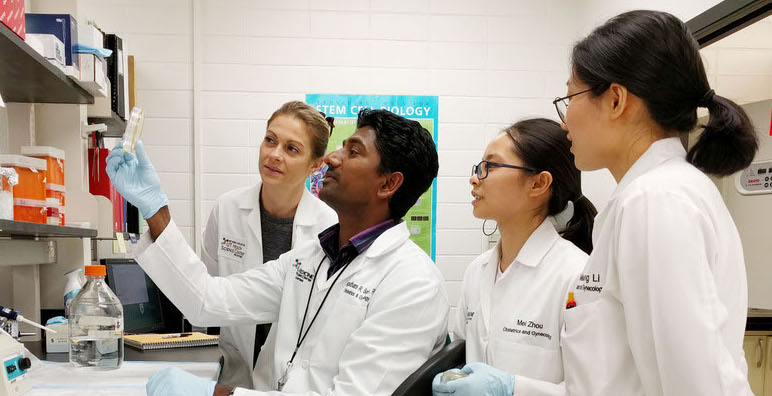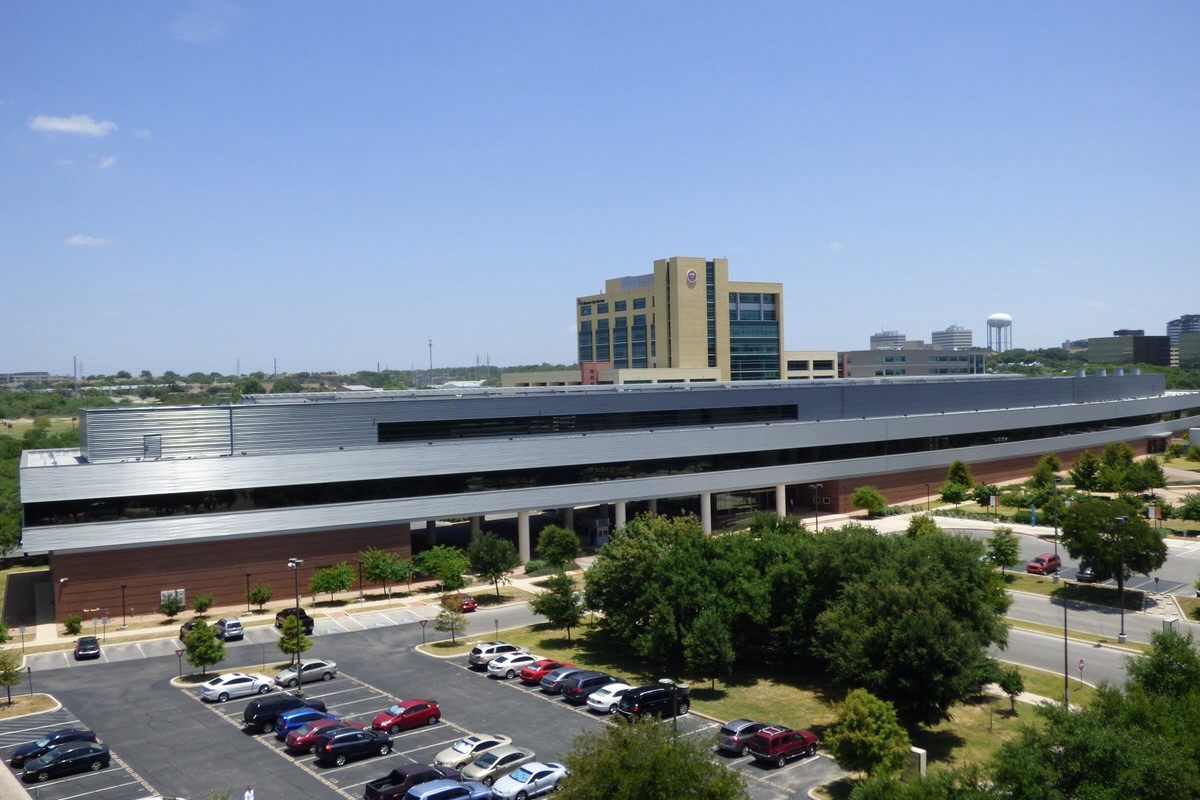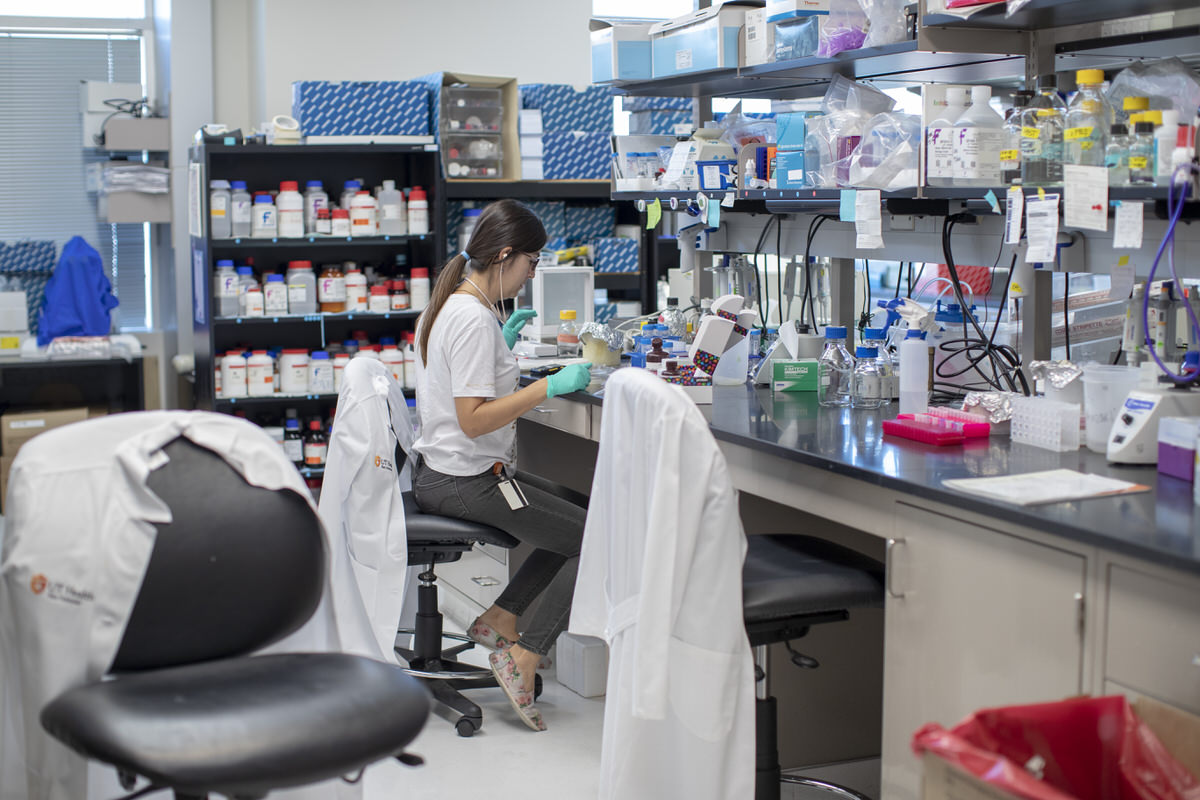
UT Health San Antonio has a long history of excellence in cancer research with successful programs in DNA repair, genomics, cell signaling and receptor biology, structural biology, drug discovery, chemoprevention, experimental therapeutics and clinical trials.
Most Cancer Biology graduate students conduct their research at facilities on the Health Science Center’s main campus, the Greehey Children’s Cancer Research Institute, the South Texas Research Facility, or the NCI-designated Mays Cancer Center on the Greehey Campus. These facilites house research scientists and clinical-care physicians who collaborate to move laboratory discoveries into cutting-edge therapies for patients and their families and provide a comprehensive training environment for the next generation of cancer researchers.
State-of-the-art core facilities in Bioinformatics, Biomolecular NMR, Macromolecular Interactions, Flow Cytometry, Next-Generation Sequencing & Bioinformatics, Genomics, Mass Spectrometry, X-ray Microtomography, Optical Imaging, and X-ray Crystallography are available to our students. Multiple computing clusters, centralized storage and access to the Texas Advanced Computing Center are available for data analysis and computational modeling.
Research Areas:
- Genomics/proteomics
- Cell signaling and receptor biology
- Tumor immunology
- DNA damage & repair
- RNA biology
- Structural biology
- Drug discovery
- Chemoprevention
- Experimental therapeutics
- Clinical trials

